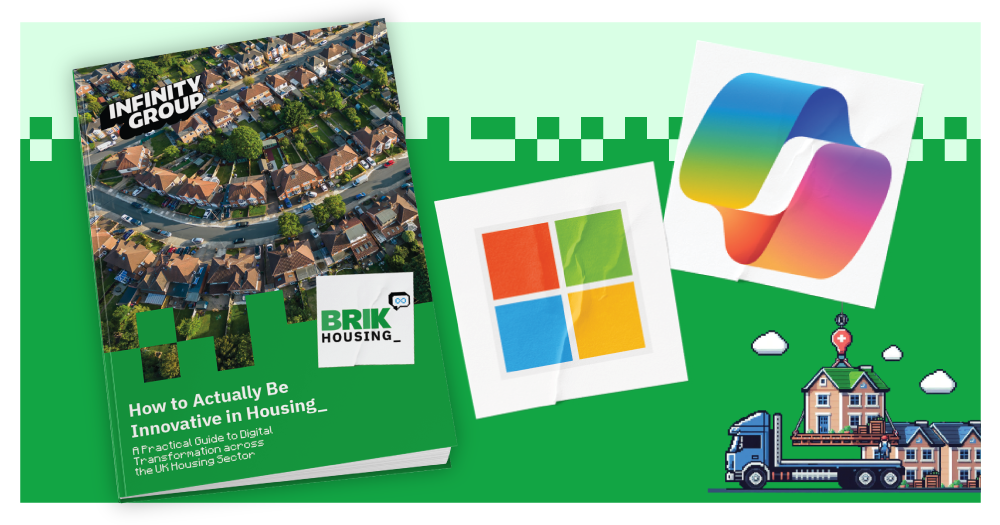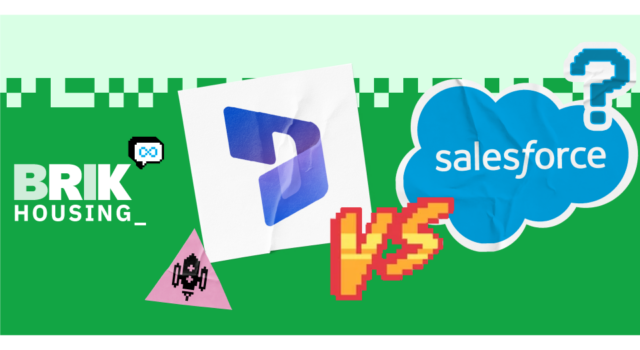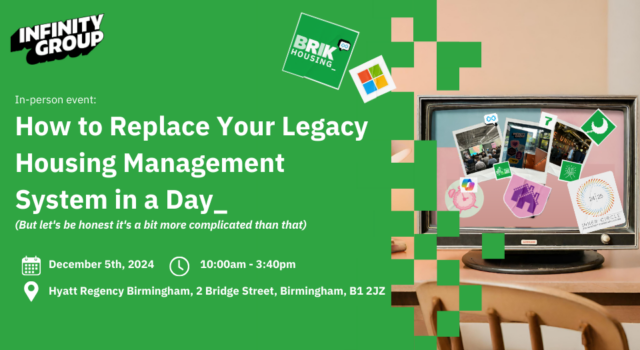Time really is running out for Legacy housing management systems.
They’re clunky. Hard to integrate. Packed with workarounds. And while we all know they need to go, starting the project of replacing them can feel like an overwhelming, high-risk leap.
But there’s another way.
At BRIKHousing, our team of technical housing experts help housing associations to completely (and successfully) replace their legacy systems all without the long, stressful big band approach to rebuilding. We’ve found that the most effective approach is to break the project up into modules and take it step by step, starting with the areas that matter most, and learning as you go.
Why modular systems are replacing legacy housing technology_
At the time they were built legacy housing systems were designed to do everything, but they rarely do anything well anymore. But Housing doesn’t stand still and legacy systems weren’t built to keep up. From updated guidance from the Ombudsman to stricter compliance and changing legislation, modern housing teams need systems that are faster to adapt, easier to use, and flexible enough to meet evolving needs.
That’s why powering our solution with Microsoft’s evergreen technology is so advantageous, there’s no need for disruptive upgrades and our modular implementation approach means it’s never tenuous to adopt. You can replace your legacy system module by module, starting with a process of your choosing like rent accounting, compliance, repairs, that’s any other area that’s in need of TLC.
This isn’t just more manageable—it’s a smarter way to reduce risk, deliver value quickly, and stay focused on what matters: better housing outcomes and happier tenants.
Seven steps to legacy system liberation_
1. One bite at a time: the modular approach
Replacing everything at once might feel like you’re in control but it often leads to delays, frustration and rework. Remember how you eat an elephant? One bite at a time. The same applies to legacy system replacement:
- Start with a single module – complaints or asset management are strong starting points
- Quick wins build momentum and confidence
- Reduce risk by containing issues in one area
- Learn as you go so lessons can be applied to the next module
2. Pristine flowcharts of future processes may be holding you back
We’ve seen it time and time again, organisations get stuck trying to design the perfect future state. But here’s the truth:
- Housing associations operate more similarly than they like to admit
- Analysis paralysis can be the result of over-engineered processes before implementation
- Best practices can be leveraged that have been refined across the sector
- Remain flexible to adapt when you discover better ways of working
Start with templates of processes and configurations which can be adjusted based on actual usage rather than theoretical workflows.
3. Data first, not last
Around 40% of system projects fail or stall because of late-stage data issues. Don’t let that happen.
- Begin data migration early with your most critical information
- Take a proactive approach to data management, cleaning and validating as you go with Microsoft’s Dataverse
- Establish strong governance standards
4. Manage expectations – including your own
There’s a difference between ‘good enough to launch’ and ‘perfect’
- Embrace the Minimum Viable Product (MVP) mindset with enough features to ensure early adopters feedback to improve solutions
- Focus on solving core issues first, then refine
- Avoid over-engineered processes that will change anyway
- Plan for evolution not perfection
Every additional ‘must-have’ requirement adds complexity, time and risk, so choose wisely.
5. Bring your people with you
- No matter how innovative your new system is, it won’t work without buy-in.
- Involve users early and often in demos and decision-making
- Create system Champions who are available to support their colleagues
- Build a sandbox environment where people can practice without fear
- Remember technology adoption is about psychology, not features.
6. Embrace the 80% rule
Perfection is the enemy of progress and reasonable project timelines:
- Out-of-the-box solutions deliver 80% of what you need
- The last 20% often consumes 80% of your budget and timeline
- Launch with what works, then refine based on usage
- Prioritise business value over feature completeness
North Star Housing Group launched their compliance module in weeks, not months, by following this principle. Using Microsoft Azure AI, they reduced manual certificate processing from 25+ hours to just 8–10 hours a week—saving £22,500 annually.
7. Partner, don’t just purchase
Choosing the right technology is only half the story. Choose a team that understands housing and shares the same intentions as you.
- To deliver best value, build genuine relationships with your technology provider
- Select partners who understand housing, not just technology
- Gain honest feedback to improve processes
- The best partnerships thrive from embracing challenges to achieve the best results
A smarter way forward_
With BRIKHousing, you don’t have to wait 18 months for a system that may never launch. You can start small, build confidence, and replace your legacy housing management system in a way that works for your team as well as your residents. Get in touch today.
Curious about how others are doing it? Download the guide: How to actually be innovative in Housing.




